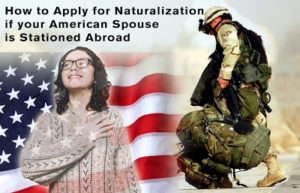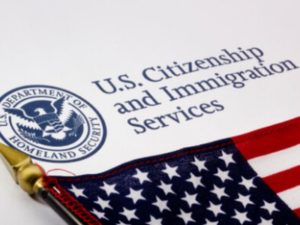 Vietnamese spouses of U.S. citizens are generally eligible for green cards and eventually U.S. citizenship based on their marriage. In general, a person may only be naturalized after showing that they have resided in the United States as a green card holder for a certain prescribed period of time. However, what about Vietnamese citizens who are married to an American citizen but their American spouse is living overseas in Vietnam for employment reasons?
Vietnamese spouses of U.S. citizens are generally eligible for green cards and eventually U.S. citizenship based on their marriage. In general, a person may only be naturalized after showing that they have resided in the United States as a green card holder for a certain prescribed period of time. However, what about Vietnamese citizens who are married to an American citizen but their American spouse is living overseas in Vietnam for employment reasons?
To address this situation, Act 319(B) of the Immigration and Nationality Act (INA) provides for an exception to the residency requirement for a Vietnamese spouse married to a U.S. citizen provided that the U.S. citizen is “regularly stationed abroad” under a qualifying employment. A qualifying employment abroad means that the American spouse must be stationed abroad for at least one year under an employment contract or order in any of the following entities or position:
- Government of the United States (including the U.S. armed forces)
- American institution of research recognized by the Attorney General;
- American firm or corporation engaged in whole or in part in the development of foreign trade and commerce of the United States or a subsidiary thereof;
- Public international organization in which the United States participates by treaty or statute;
- Authorized to perform the ministerial or priestly functions of a religious denomination having a bona fide organization within the United States; or
- Engaged solely as a missionary by a religious denomination or by an interdenominational organization having a bona fide organization within the United States.
To qualify for naturalization under Act 319(B) of the INA, the Vietnamese spouse must establish that he or she meets the following criteria:
- 18 years or older at the time of filing;
- A lawful permanent resident at the time of filing of the naturalization application;
- Continue to be the spouse of the U.S. citizen regularly stationed abroad in qualifying employment for at least one year;
- Married to a U.S. citizen regularly stationed abroad in qualifying employment for at least a year; Has a good faith intent to reside abroad with the U.S. citizen spouse upon naturalization and to reside in the United States immediately upon the citizen’s termination of employment abroad;
- Establish that he or she will depart to join the citizen spouse within 30 to 45 days after the date of naturalization;
- Understanding of basic English, including the ability to read, write and speak;
- Knowledge of basic U.S. history and government;
- Demonstrate good moral character for at least three years prior to filing the application until the time of naturalization;
- Attachment to the principles of the U.S. Constitution and well-disposed to the good order and happiness of the U.S. during all relevant period under the law.
Although the process appears straightforward, it is still an unusual case to handle for USCIS officers. In fact, many USCIS officers have never handled such a case and may be unaware of the exception granted under Act 319(B). Applicants are advised to take note of the laws and procedures in applying for naturalization under A 319(B) of the INA.




